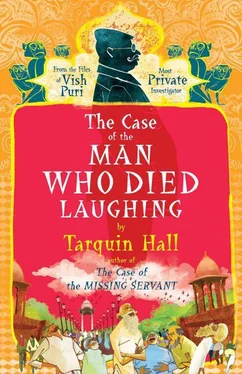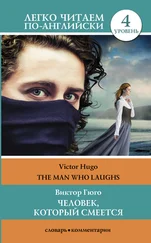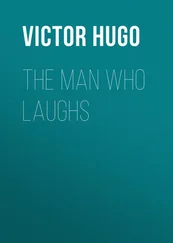Puri slapped his thigh with a festive cry.
“Shubho-dada, you’re the real miracle worker!” he exclaimed. “Such a mine of information you are. You should be a detective, actually.”
“But then I would miss all the free trips to international conferences on things like recent advances in inflammatory bowel disease!”
They made a second pass of the buffet. Puri went for the French toast this time.
“Time for a quick game?” asked Dr. Ghosh when their plates were clear again.
“Actually, Shubho-dada, I had better make a move, huh.”
“Come now, old pal, we see so little of each other. What’s an hour between friends?”
“So much work is there, actually,” insisted Puri, looking at his watch.
“You’re sure work is not just a convenient excuse?”
“Certainly not…”
“I’d understand if it was. Especially after the thrashing I gave you last time.”
“Listen,” said the detective good-humoredly, “you are ahead by one game, only.”
“I didn’t know we were counting. But if you put it like that…”
* * *
Five minutes later, they sat facing one another across a low coffee table in the colonnaded ballroom where tea and cucumber sandwiches were served. Some of the other armchairs were occupied by elderly guests whose rheumy eyes perused the Sunday edition of the Times of India .
Before Puri and Dr. Ghosh lay a chessboard. They arranged the pieces but ensured that the rajas, or kings, didn’t face one another – this being one of the rules of modern chess’s ancient Indian precursor, chaturanga, which they’d started playing for fun in the past year or so.
The detective, whose pieces were white, opened by moving a sippoy, or pawn, and his opponent matched his move. Puri then put one of his kuthareis, or horses, into play.
As Dr. Ghosh made his second move, they began to swap Gym gossip. There was a fierce battle underway for the club’s presidency. The air marshal of the Indian air force was up against the army chief.
“It’s warfare of a different nature,” commented the detective, who joked that it probably wouldn’t be long before trenches were dug across the lawns by the opposing sides.
Dr. Ghosh put his mantri, or counselor (the equivalent to a queen, but the piece can move only one square at a time and diagonally), into play. The move puzzled Puri; it was a hugely risky one and not in character with his opponent’s usually cautious tactics. But he decided to continue with his strategy nonetheless and positioned one of his yaaneis, or elephants, to strike.
The conversation strayed back to the topic of the murder.
“What saddens me is to see these Godmen types muddying the name of Hinduism,” said Puri.
“The clergy is always crooked in any religion,” said Dr. Ghosh.
“Hardly makes it right, Shubho-dada. They keep society hostage to superstition and nonsense. There’s nothing spiritual about them. Bloody goondas, the lot of them.”
By now, the detective had taken nine of his opponent’s pieces and had ten remaining. But Dr. Ghosh was far from beaten and quickly launched a counterattack on Puri’s left flank, taking his remaining iratham, or chariot (the equivalent of a rook). Puri’s defenses suddenly crumbled and within a few moves he found his raja standing alone, signaling the end of the game. He had lost again.
“You were bluffing, is it?” asked Puri.
“Forgive me, Chubby. I’ve been playing with my nephew. He’s brilliant, only eleven – going to give that Viswanathan Anand a run for his money one fine day. He bluffs a lot – often sets up the illusion that he’s losing.”
Puri stared at him blankly.
“What’s wrong, Chubby?” asked Dr. Ghosh.
No reaction.
“Chubby?” prompted his friend, looking worried.
“By God!” exclaimed the detective. And then louder: “What a bloody fool I’ve been these past days! Of course! It is an illusion within an illusion!”
He stood up. The geriatrics lowered their newspapers and stared.
“Finally I know! I tell you, this thing has been driving me mad!”
“Know what, Chubby?”
“Who it was who knocked me for six!”
“You were knocked unconscious? When? You didn’t tell me. Have you been examined?”
“Shubho-dada, I must go. No delay!”
And before Dr. Ghosh could say another word, the detective was out the door.
* * *
Fifteen minutes later, Puri reached the south end of Rajpath to find the road still barricaded by the police. A constable on duty informed him that it would not reopen until tomorrow; in the meantime, he was welcome to proceed on foot.
Frustrated but with no other option, the detective set off on his own, umbrella held aloft, retracing the steps Dr. Jha had taken five days earlier.
By now it was almost noon and the heat of the sun bore down on him like a blowtorch. He moved as fast as his left leg would allow him, the insides of his shoes squelching with sweat, until he reached the shade of the jamun tree where the Kali illusion had been staged. The police cordon around the crime scene had by now been removed, as had the incense sticks and offerings left on the ground by worshippers. On either side of the tree trunk lay a flea-bitten pye-dog and a laborer, both of whom were sleeping soundly despite the heat and the flies.
It took Puri a minute or so to recover from the walk and to wipe the salty perspiration from his eyes. And then he began to scour the murder scene.
He slowly circled around the area three times. Then he started to walk backward away from it to get a different perspective.
When he had gone about twenty feet, he noticed something odd. The grass in the vicinity where Kali had levitated was a shade darker, as if it had received more rainfall or perhaps been watered. It was a subtle difference, one that could easily be overlooked.
He hurried back to the spot, cast aside his umbrella and, with some difficulty given his girth, got down on one knee. Taking out his key chain, which had a Swiss Army penknife attached, he pushed the largest blade down into the grass. At a depth of two inches, it came into contact with something solid. He twisted the blade. It felt like metal.
“Heartiest congratulations, Mr. Vish Puri, sir!” he exclaimed out loud with a chuckle, pronouncing heartiest ‘hartees’.
He probed with his knife in six other spots, each time with the same result, before getting back to his feet. For a minute or so, he stood looking down at the ground, contemplating whether to go and fetch a helper with a shovel and dig up the grass, but decided this would have to wait.
He still needed proof that it had been Professor Pandey who had hidden the pieces of metal under the grass.
Given that it was a Sunday, this was going to take some time.
Facecream was serving lunch. For an hour, she and her fellow devotees worked their way back and forth along the rows of visitors seated on the floor of the tent, ensuring that each person received their fill.
Amongst them sat a wiry young man with thick glasses, pockmarked cheeks and sharply parted hair that glistened with Brylcreem. His moustache was but a wisp, the hairs thin and fluffy like a caterpillar’s legs, and his clothes served to enhance his physical immaturity, being devoid of any flair. He wore a gray Western shirt untucked over a pair of straight gray trousers. The breast pocket was stuffed with pens and marked with biro stains. From his belt hung a clump of keys and a multitool.
Facecream could not help but smile at the sight of him. It was rare to see Flush out in the field. Sitting there shoulder to shoulder with ordinary people, he looked uncharacteristically unsure of himself. His natural habitat was a darkened room where day and night were not easily discernible, surrounded by monitors, soldering irons, circuit boards and empty pizza boxes. On his days off, he read graphic novels and admired the cover girls of the Indian edition of Maxim magazine.
Читать дальше












